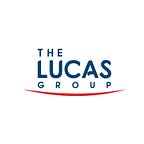Where Human Capital Creates Value — So Easy to Overlook!
It has been said that people do not leave companies, they leave managers. Building successful companies is extremely hard work, yet we do not spend enough time considering what good leadership looks like, or how important real teamwork is to the increased probability of a successful and desirable outcome. As humans, when we feel trusted, supported and understood…we are all in a much better position to listen, communicate effectively, see opportunity, find creative solutions and carry forward with enthusiasm and confidence.
As leaders in the investment community, our lifeblood depends on the talent that we can attract and retain, yet all too often investment managers and executives think about team members, employees and at times, even our partners as proverbial ‘cogs in the wheel’ or interchangeable parts in our machine. When things go wrong, it is fairly common for companies to witness a barrage of finger pointing and job cuts, without leadership and/or their respective boards taking accountability for their own missteps which accrued to an undesired outcome. We inherently know that the performance of our investments, the enjoyment of our work and ultimately our collective livelihoods are incumbent entirely upon our ability to build and retain a team that will, put simply, ‘execute a plan’, this is as much of an art as it is a science.
We also know that no matter how iron-clad a plan or how accomplished an executive team, there will be difficult and at times, impossible to foresee circumstances that arise, inevitably requiring leaders and their teams to assess, redirect and continue forward. Often times down a different path than what was originally agreed upon or presented to the board. This can happen many times throughout the lifecycle of an investment and for all involved, can be quite taxing. Therefore, it is critical for all stakeholders that executives and thereby their teams are not only chosen selectively, but have been given the trust, resources and support necessary to continue the pursuit of the ultimate objective through several iterations of ‘the plan’. This starts at the top.
More now than ever, it is vital as leaders that we look inward and ask ourselves what work has been done, what work we are doing or what work can be done going forward to effectively support the people in our organizations, both professionally and personally. At the end of the day, employees and partners are human beings who more often than not, want to do their best and deliver results that everyone, even the most rigorous, demanding managers would be proud of. Unfortunately, many executives and teams are under-resourced, unmotivated and facing burn-out, to the benefit of no one. These detrimental dynamics tend to go largely uncommunicated until it is too far gone, usually due to a fear of being judged, criticized or at worst, replaced. It is difficult to think critically and constructively when in this general state of concern, so when these negative dynamics set in, it inevitably begets a tailspin of undesirable outcomes or generally poor performance (a negative cycle). All of which is costly in both time and capital to overcome.
Conversely, when leaders and teams feel trusted, supported and heard, it makes problem acknowledgement and critical problem solving more timely and effective, thus driving action and delivering progress towards the ultimate objective. When trust and support is present, leaders and teams are more likely to communicate their challenges, concerns or shortcomings more concisely and well before they become major problems. They are also considerably more open to constructive criticism, feedback and advice. When this dynamic is present, it not only allows key stakeholders to carefully weigh in and align on the best path forward, it cultivates an important internal dynamic of healthy communication, respect, team culture and relationship building which ultimately leads to a higher probability of achieving the desired outcome (a positive cycle).
As humans, when we feel trusted, supported and understood…we are all in a much better position to listen, communicate effectively, see opportunity, find creative solutions and carry forward with enthusiasm and confidence. We can weather the storms with a clearer, more creative mind and find it easier to motivate ourselves and our teams. Therefore, it behooves us all to take some time to reframe our perspective of what it means to be the world class executive, investor, board member or partner that we all aim to be, by remembering that we are all in this together. This simple shift in mindset might just be the million-dollar secret you’ve been looking for and the best part about it is…there is no downside.
